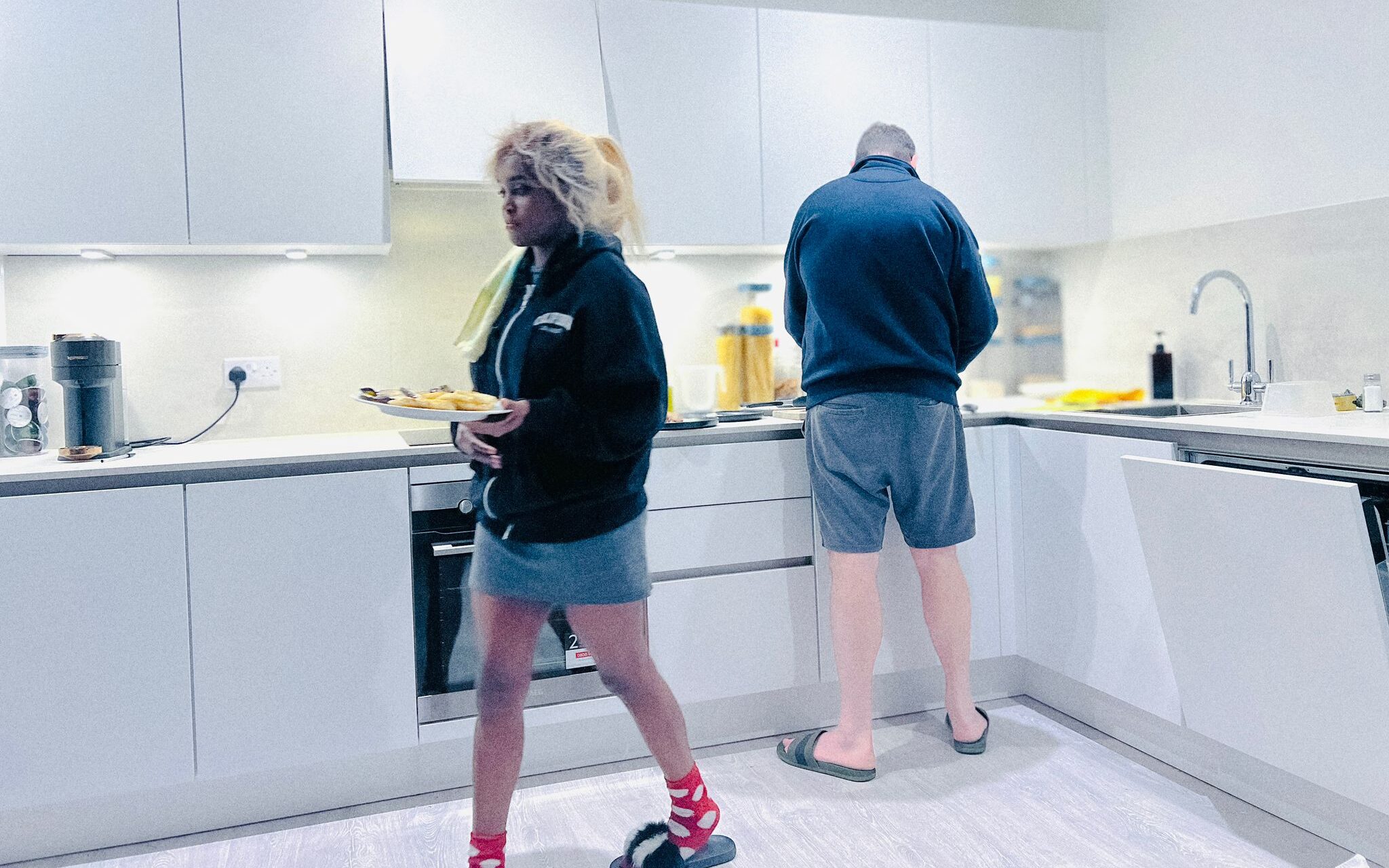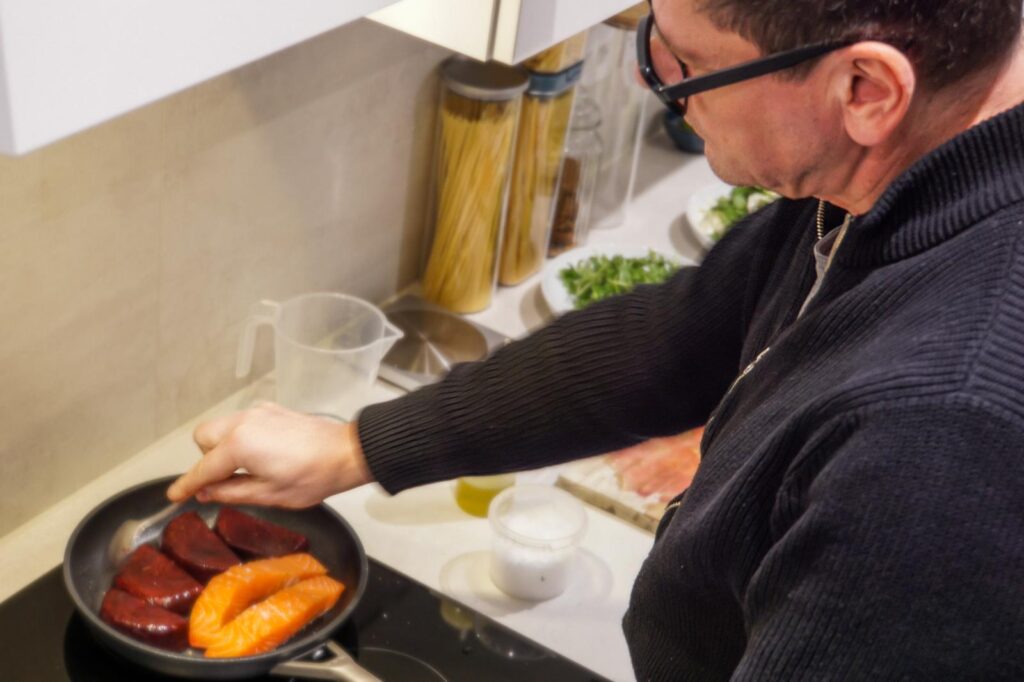Is your partner pulling their weight when it comes to house chores? Do they also take out the rubbish? Or perhaps you find yourself shouldering the majority of the responsibilities? It’s a common concern in many relationships that can jeopardize your happily ever after, leading to resentment when one person feels their partner isn’t doing their fair share.
That’s why, it’s time to split chores.
In recent years, studies have shown that couples who actively divide their chores tend to experience higher levels of satisfaction. In today’s fast-paced world, where we’re all juggling demanding workloads, finding this equilibrium is crucial.
In my household, chores are divided between me and my partner, Franco. It’s not the typical ‘pink jobs’ and ‘blue jobs’ division. Because we’ve found a system that works for us. One that’s based on our individual preferences and strengths, rather than societal norms.

So, how can couples navigate the division of household tasks to foster a happier, more balanced partnership?
Open Communication
Like most successful processes, start with an honest and open conversation with each other. Discuss your expectations, needs, and any concerns related to housework. There is no point having one person cooking, taking care of the laundry, making the bed etc alone, while the other just lounges on the sofa. Speaking openly and honestly on who does what, when, where and how, ensures both couples are on the same page.
For us, way before we even moved in together, I made it clear that Laundry was mine to do. I like to handle the laundry because I do it neatly. There’s something satisfying about sorting the clothes by colour, setting the right temperature, and folding everything into neat piles. Franco, on the other hand, takes care of cleaning the house. He enjoys it and does a fantastic job. I can’t stand the smell of cleaning products, so this arrangement works out perfectly.
Identify each partner’s strengths and preferences.
Cooking in our home is mostly a shared responsibility. However, it wasn’t always that way. In our early dating days, Franco, a trained chef, naturally took the lead.

But as weeks went by, I noticed that after a 10-hour day in a professional kitchen, he needed a break from cooking. So, I stepped up, despite his initial scepticism. Today, we share the cooking. Franco handles the meats and fishes. His professional skills evident in every bite. I take care of the salads and vegetables — my love for fresh produce coming to life on each plate.
Approach chores as a team effort
When it comes to doing the dishes, it’s a collaborative endeavour. I wash and rinse; he wipes them dry and stores them. It’s a routine we’ve fallen into, a dance we perform together in the kitchen, a shared responsibility that somehow brings us closer. I suppose it’s this simple act of working together that, in retrospect, speaks volumes about our relationship.
This also demonstrates our ability to work as a couple towards a common goal. And in those moments, I guess it’s the clinking of plates that becomes a melody of togetherness, and the act of tidying up after a meal transforms into an intimate connection.

That’s nice. But who will take the rubbish Out?
Just like most people, I’d rather avoid taking out the trash. However, to keep our chore-sharing fair, we’ve come up with a simple plan: we take turns. This method is a great alternative to sticking to the same chores. For example, when I handle the trash duty, Franco does the grocery shopping, and then we switch next time. This keeps our chores from getting boring and, more importantly, makes sure we both contribute equally to keep our home peaceful and tidy.
Embrace Housework Sharing Apps
In today’s digital age, it has become more manageable and motivating to split chores, thanks to innovative chore apps like “Choreful” and “Nipto.” These digital tools have changed people’s approach to household responsibilities. They are not only fun, they effortlessly track completed chores, promoting transparency and accountability in our chore-sharing.
Secondly, these apps provide timely reminders, preventing forgotten tasks and reducing stress.
Should Couples therefore Split Chores?
By all means yes! Nobody wants to be the one doing all the donkey work right?

Remember, it’s not just about maintaining a tidy living space; it goes beyond that. Sharing household responsibilities is a fundamental component of a happy and balanced couplehood.
When both partners actively participate in sharing chores, it fosters a sense of unity and mutual respect. It signifies that you’re in this together, as a team. This shared responsibility can contribute to a deeper emotional connection, as it’s a tangible expression of support and cooperation within the relationship.
In short, sharing chores isn’t just about cleanliness; but about building a more satisfactory and balanced relationship. It contributes to a happier living environment and nurtures a stronger connection between partners. It’s a simple yet powerful way to show care and consideration for each other’s well-being and happiness.
And don’t forget, regular reviews and adjustments keep the chore-sharing arrangement fair and relevant.



